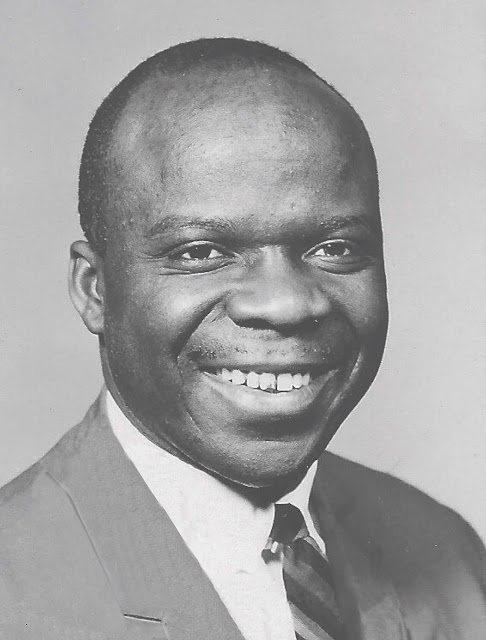Peoples Brewing Company had been producing beer on South Main Street for 59 years when it closed in 1972. The closure had been preceded by two, tumultuous years that began with the sale of the brewery to a Milwaukee-based group led by Theodore Mack. With that, Peoples became the first black-owned brewery in Wisconsin.
 |
| Theodore Mack |
It’s those two years that have ignited interest in a brewery few outside of Wisconsin had heard of until recently. John Harry is one of the people responsible for raising that awareness. On Thursday, February 24, the Oshkosh Public Museum will host Harry via Zoom for a public discussion titled “Peoples Beer: The Story of Wisconsin's First African American Owned Brewery.”
 |
| John Harry |
Harry was recently named Executive Director of the Portage County Historical Society, but before taking that job he had immersed himself in the 1970s incarnation of Peoples Brewing when Theodore Mack was its president. Harry had come upon that story while preparing for a transition of his own. "I was a radio DJ for 10 years and decided I was going to change careers," he says. "I've always loved history and I was at a point in my life where I was like, let's just go for it."
He moved to Milwaukee where last year he earned a master's degree in public history at the University of Wisconsin-Milwaukee. There, he focused on black capitalism as it pertained to the Theodore Mack era at Peoples. "Nobody was writing about it on an academic sphere," Harry says. "I found my niche there as a historian."
Harry began gathering oral histories from people who had been connected to the brewery in the early 1970s. Though Theodore Mack had passed away in 2019, Harry traveled to Georgia to interview his widow, Pearl, who had been the corporate secretary at Peoples. “It was one of those things where you ask yourself, is this really going to happen?” he says. “I sat down and had about a half hour conversation with her. You're talking to this woman who was married to Ted Mack; nobody knows this guy better. It was really intense.”
In July of 2020, Harry shared much of what he had gathered in a piece for the Good Beer Hunting website titled “Beer for the People — How Wisconsin’s First Black-Owned Brewery Took on the Entire Beer Industry.” The article placed what had occurred at Peoples in the 1970s within the context of minority entrepreneurship and documented Theodore Mack's struggle for success and ultimate failure in Oshkosh.
The timing was fortuitous. Against the backdrop of 2020's Black Lives Matter protests, the lack of diversity in American craft beer was being called out in a more forceful manner. For those concerned, Harry's article provided a historical frame of reference that had been missing. Peoples Brewing, which had closed almost 50 years earlier, was suddenly receiving more widespread attention than it had during its peak years in the 1950s.
Shortly after Harry's article appeared, a brewery in Sacramento, California announced that it was claiming the legacy of Peoples Brewing for its own. With the blessing of Theodore Mack's son Ted Mack II, Oak Park Brewing co-opted the Peoples Beer brand and began releasing their product under a label lifted directly from the defunct Oshkosh brewery.
Harry published a follow-up article for Good Beer Hunting that addressed some of the more troubling aspects of the Oak Park situation.
"Anytime you give more exposure to an untold story about an underserved population, I think that that's a good thing," Harry says. "I think it's interesting, though, that there's no inclusion of the community of Oshkosh. As a question of ownership or memory of something like Peoples Beer, the people who remember it best are going to be in Oshkosh. The community didn't have their chance to weigh in. It became less a beer of the community and more a beer of black history. I think you have to tell that part of the story, but you can't also ignore the 60 years of history that led up to that."
It's a story that continues to unfold and one that Harry will explore fully in his talk for the Oshkosh Public Museum on Thursday, February 24. To attend, go to oshkoshmuseum.org and click the Programs/Events tab at the top of the page (here is a direct link to the event page).
This article also appears in the February 23 edition of the Oshkosh Herald.







No comments:
Post a Comment